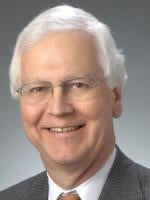The U.S. Supreme Court’s decision today in Midland Funding, LLC v. Johnson, 581 U.S. ___, No. 16-348, draws attention in passing to a peculiar feature of Wisconsin law on the effect of statutes of limitations. The 5-3 decision, in an opinion by Justice Stephen Breyer, holds that a debt collector that files a proof of claim in bankruptcy when collection is barred by a statute of limitations does not thereby violate the Fair Debt Collection Practices Act’s prohibitions on asserting any “false, deceptive, or misleading representation,” or using any “unfair or unconscionable means” to collect a debt. 15 U.S.C. §§ 1692e, 1692f. In reversing the Eleventh Circuit’s contrary holding, the Court agreed with all the other federal courts of appeals that have decided the issue, including the Seventh Circuit. See Owens v. LVNV Funding, LLC, 832 F.3d 726 (7th Cir., 2016). Owens involved cases from Indiana and Illinois, whose common law holds (like that of the majority of states) that the running of a statute of limitations only bars an action to collect but does not extinguish the claim. Id. at 731.
Wisconsin is different, at least on the surface. As Justice Breyer noted in his Midland Funding opinion, slip op. at 3, Wis. Stat. § 893.05 provides that “[w]hen the period within which an action may be commenced . . . has expired, the right is extinguished as well as the remedy.” The statute codifies Wisconsin’s common law. See Maryland Cas. Co. v. Beleznay, 245 Wis. 390, 14 N.W.2d 177 (1944). Nevertheless, the practical significance of Wisconsin’s minority view on extinction of debt as well as remedy is difficult to assess, for the statute of limitations is an affirmative defense that must be raised in an answer or motion, Wis. Stat. §§ 802.06(2)(a)9., 802.06(8)(b), and failure to raise it waives it. See Johnson v. Heintz, 73 Wis. 2d 286, 298-99, 243 N.W.2d 815 (1976).
Because of the Midland Funding holding, filing a bankruptcy proof of claim on a stale debt does not violate the FDCPA. But, as Justice Sotomayor noted in her dissent, every court to consider the question has held that a debt collector that sues to collect a stale debt does violate the Act. Slip op. at 3-4. The Supreme Court did not address that unpresented question in Midland Funding, and nothing in the Court’s opinion suggests that it would disagree with the apparently unanimous view of the lower courts.




 />i
/>i

